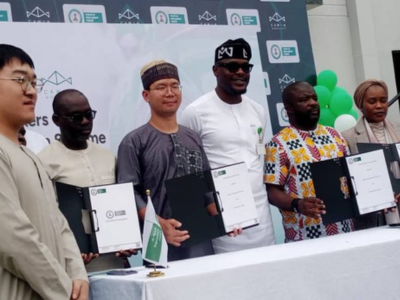Nigeria Launches Program to Skill 2,000 Youths in Electric Vehicle Technology
- by Admin.
- Sep 05, 2025

Credit:
The Youth in Parliament Forum (YIPF) has unveiled a program in collaboration with CAWIN Mobility Limited to train 2,000 Nigerian youths in electric vehicle (EV) technology, focusing on maintenance and manufacturing.
Announced during the signing of a Memorandum of Understanding (MoU) in Abuja, the initiative offers free training commencing September 20.
YIPF Director General Tony Nwulu, a former House of Representatives member, described the launch as a pivotal step, positioning Nigeria’s youth as leaders in Africa’s shift toward renewable energy and sustainable transportation.
Mr. Nwulu emphasized the urgent need to address the servicing of EVs, with the program targeting 1,000 engineering students and 1,000 mechanics from across the nation. He encouraged eligible youths to apply through the YIPF website, noting the program’s accessibility at no cost.
Complementing this effort, the Lawmakers Car Acquisition Scheme (LCAS) was introduced, offering federal lawmakers access to both electric and conventional vehicles at affordable rates, supported by flexible payment plans and after-sales services.
Mr. Nwulu highlighted that this scheme not only aids lawmakers in their duties but also promotes the adoption of eco-friendly transport solutions, reflecting a commitment to youth development, mobility, and national progress.
Olamijuwonlo Alao-Akala, Chairman of the House Committee on Youth in Parliament, reinforced the initiative’s significance, stating that Nigeria must proactively prepare for the widespread adoption of EVs with a skilled workforce and supporting infrastructure. He commended CAWIN Mobility for its forward-thinking investment and lawmakers for their backing during the recess period.
CAWIN Mobility’s Managing Director, Wayne Ji, underscored the program’s broader vision, framing it as a dedication to Nigeria’s youth, environmental sustainability, and economic advancement. T
he training will prepare 1,000 technicians for service centers and garages, while 1,000 engineers will engage in advanced studies with Nigerian universities, specializing in EV research, design, and production. Ji also outlined plans for a comprehensive EV ecosystem, including charging stations, local assembly capabilities, supply chains, and ongoing support.













0 Comment(s)